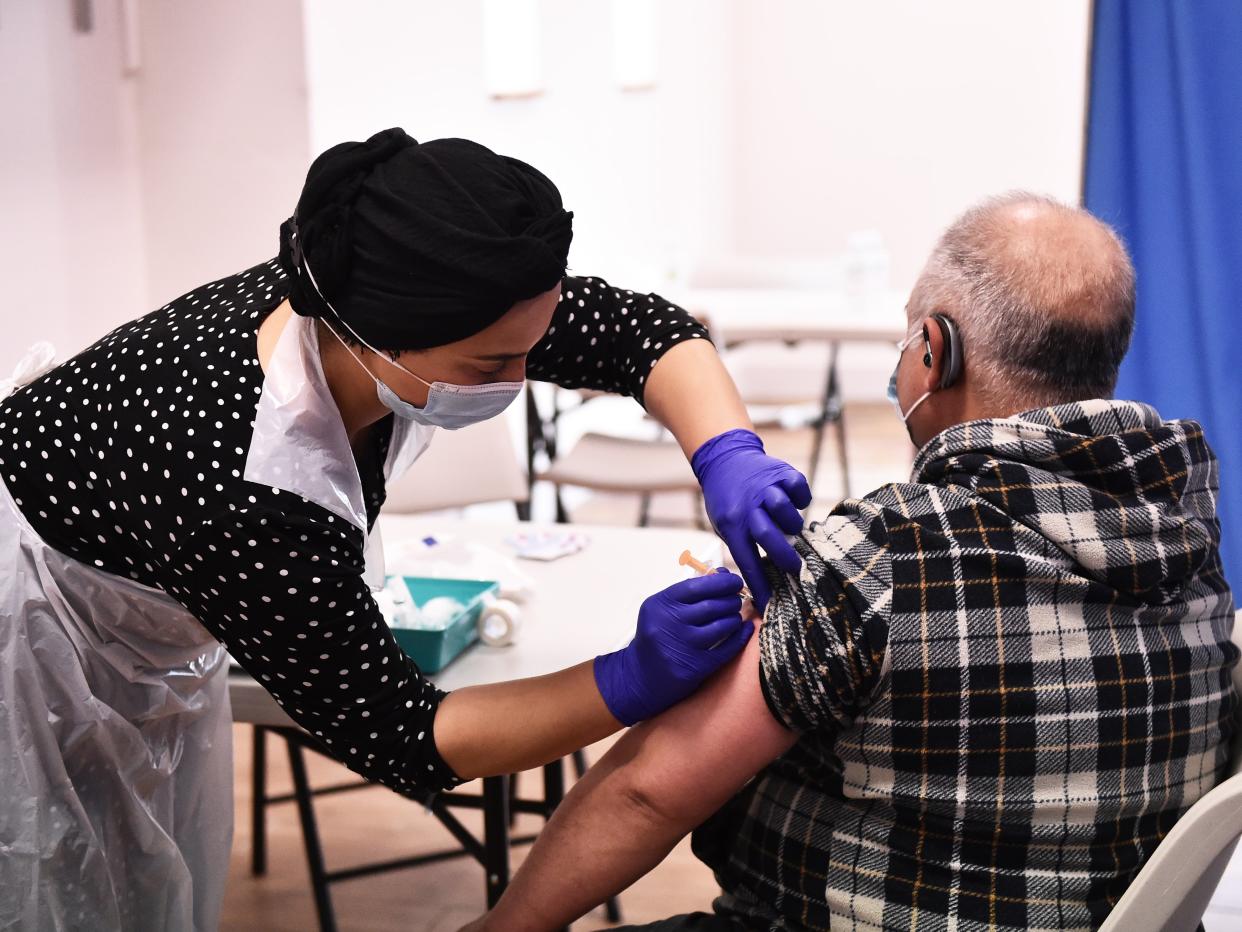Possible Johnson & Johnson vaccine blood clots ‘extraordinarily rare events’, government adviser says

A scientist advising the government has said that any blood clots associated with the Johnson & Johnson vaccine – and other coronavirus jabs using similar technology – are “extraordinarily rare events”.
Four people in America have suffered serious cases of a rare blood clotting condition after receiving the US-made inoculation, it has emerged, echoing a number of cases and fatalities seen in Europe in people who have received the Oxford/AstraZeneca jab in recent weeks.
Peter Openshaw, an Imperial College London immunologist and member of the Covid-19 clinical information network, told BBC Radio 4’s Today programme on Saturday that “we still don’t know whether they are directly related and caused by the vaccine, but it seems possible that they could be.”
Prof Openshaw said it was essential to bear in mind how rare these events are, particularly given the “massive scale” and scrutiny of the global vaccine rollout.
Asked whether he was concerned that the cases could undermine public confidence in coronavirus jabs, Prof Openshaw said: “These are extraordinarily rare events and there is no medicine that is going to be completely free of side effects.
“But this is on the scale of the risk of adverse outcome you would expect if you get into a car and drive 250 miles, and many of us wouldn’t blink before taking that risk.”
The Johnson & Johnson, AstraZeneca, and Russia’s Sputnik V vaccines are all adenoviral vaccines.
“These are common adenoviruses that cause frequent infections, but they’ve been genetically modified or disabled or selected in order to be very benign, but also to carry the spike protein of the coronavirus,” Prof Openshaw said.
“It’s a very ingenious way of delivering the spike protein in a way that the body will learn to recognise the spike protein immunologically and will therefore mount a natural defence against infection with SARS-CoV-2 and will prevent Covid.”
A number of European countries have limited their use of the AstraZeneca vaccine following reports of rare blood clots – with dozens of cases, some fatal, reported in the tens of millions of people to have received doses.
The European Medicines Agency, which is reviewing the four US cases, said in a report on Friday that unusual blood clots linked with low blood platelets should be listed as very rare side effects of the AstraZeneca vaccine, while the UK government has decided to give those aged below 30 the option of taking a different vaccine, following a change in advice from its Joint Committee on Vaccination and Immunisation (JCVI).
There is not yet any clear answer to why these vaccines appear capable of inducing such a reaction, notably a condition known as cerebral venous sinus thrombosis (CVST).
“Of course, there are hypotheses: maybe it’s something with the vector, maybe it’s an additive in the vaccine, maybe it’s something in the production process … I don’t know,” Sabine Eichinger, a haematologist at the Medical University of Vienna was quoted as saying by the journal Nature. “It could be any of these things.”
The Johnson & Johnson vaccine, also known as Janssen, is yet to be approved for use in the UK, but the government has ordered 30 million doses.
Prof Openshaw said it “wouldn’t be surprising” to find that the Janssen vaccine also causes rare blood clots because it’s based on a similar technology to the AstraZeneca vaccine.
Current UK data suggests one in 250,000 people who have received the AstraZeneca jab could develop a blood clot linked to the vaccine. The risk of death is far lower, at one in a million.
Prof Openshaw added that many such cases unrelated to vaccines would likely normally go undiagnosed, but with heightened scrutiny of the vaccine rollout, more reports could be expected.
“With increased awareness amongst the medical profession and amongst the public about these rare events there’s bound to be a whole flush of descriptions of these events just because of increased awareness, because they’re not necessarily easy conditions to diagnose and I would guess that a lot of these conditions are actually missed because people just aren’t aware,” he told the BBC.
“They are such unusual things, and you don’t necessarily go on and do the rather in-depth investigations that you would need in order to really characterise these events.”
Additional reporting by PA
Read More
9 in 10 nurses given first vaccine dose but survey highlights gaps
Johnson & Johnson Covid jab under review by EU over blood clots in US
Jet2 suspends flights until June
Coronavirus lockdown means many eye conditions are going undiagnosed
